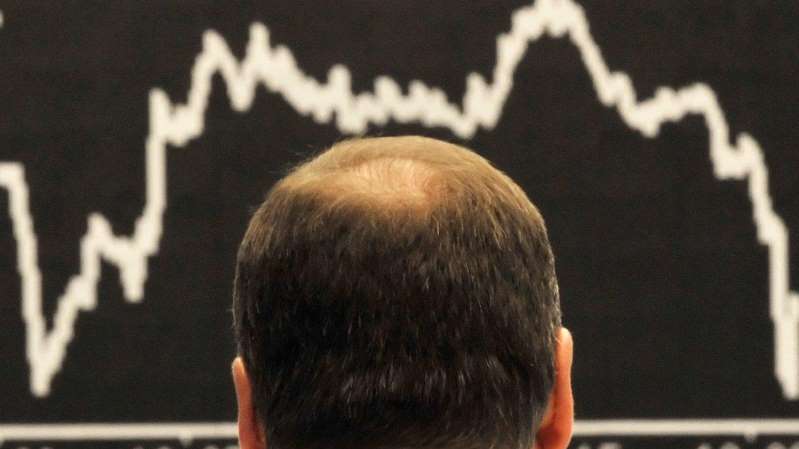Capricorn prices of individual values send the overall market downhill. Intermediate winners can be left with losses.

In the next few days it could go further down.
At first glance, it is a classic David vs. Goliath victory: small investors thwart the investment strategies of large hedge funds and lose billions in losses. But that could quickly turn out to be a Pyrrhic victory.
Because there is a threat of stricter regulation of Internet platforms on which small investors recently coordinated. In addition, the final winners of this competition have not yet been determined.
In the past few weeks, with the targeted purchase of shares in the US video game retailer GameStop and other companies, hedge funds had forced hedge funds to resolve their bets on the expiry of these securities. “The fund managers' biggest nightmare has come true,” says Naeem Aslam, chief market analyst at brokerage firm AvaTrade.
Many of these “shortsellers” are forced to part with other investments in order to offset their losses. That is one of the reasons for the recent decline of Dax, Dow Jones & Co.
“The big unknown is how big the total damage is,” Aslam adds. For this reason, the volatility indices, which measure the nervousness of investors, are on both sides of the Atlantic at their highest level in months.
“When small investors buy stocks on a large scale, apparently in a coordinated manner, that raises the question of possible market manipulation,” says investment strategist Michael Hewson of brokerage firm CMC Markets. Such agreements are expressly prohibited for institutional investors. Now social media came into focus.
According to stockbrokers, the starting point for the GameStop hype was the “Wall Street Bets” forum on the Reddit Internet platform. There users posted: “GameStop is the Holy Grail” or “We're still going to the moon … It's not too late to buy”.
The US Securities and Exchange Commission is examining the situation according to its own statements. Marc Adesso, partner at the law firm Saul Ewing Arnstein & Lehr, predicts that it could encourage the New York Stock Exchange to modify its regulations in order to mitigate such price fluctuations.
His colleague Jacob Frenkel from the law firm Dickinson Wright does not rule out criminal investigations himself. However, according to the company, the authorities have not yet approached Reddit.
The current development is favored by the rise of cheap online brokers like Robinhood.com, which make it easy for average investors to get involved in the stock market. “We are moving in a world in which the common people have the same access as professionals,” emphasized technology investor Chamath Palihapitiya in a TV interview. “You will then come to the same result or perhaps the opposite result.” Instead of regulating small investors more, the state should tighten the information requirements for more transparency.
In addition, stricter regulation could cement the feeling of inequality in the financial markets, warns Chris Weston, chief analyst at brokerage firm Pepperstone. “It's okay to support zombie companies with Fed actions, but when small investors target shortsellers, they put a stop to it.”
“Endanger the individual investors”
Dennis Kelleher, head of the Better Markets think tank, advocates tighter regulation for a different reason. Online brokers enticed consumers to do business with the promise of virtually free trading that they could not see through. “This reduces the integrity of the market and endangers individual investors.”
Neil Wilson, chief analyst of the online broker Markets.com, warns that the hype about GameStop & Co. will end as usual. “Some benefit, many lose.” It has not yet been decided who belongs to which group. Many of those hedge funds that originally bet on the price decline have been forced out of these values, says Ihor Dusaniwsky, managing director of the analysis firm S3 Partners. “But new shortsellers are taking their place.”
For the time being, however, the GameStop share is facing renewed double-digit percentage price gains, although its price has already risen by around 18 times within two weeks. Against this background, the demand for “put” options in the derivatives market is skyrocketing.
These increase in value when the underlying security loses. “Speculators are betting that the current bubble will burst at some point,” says Randy Frederick, manager at brokerage firm Charles Schwab.

